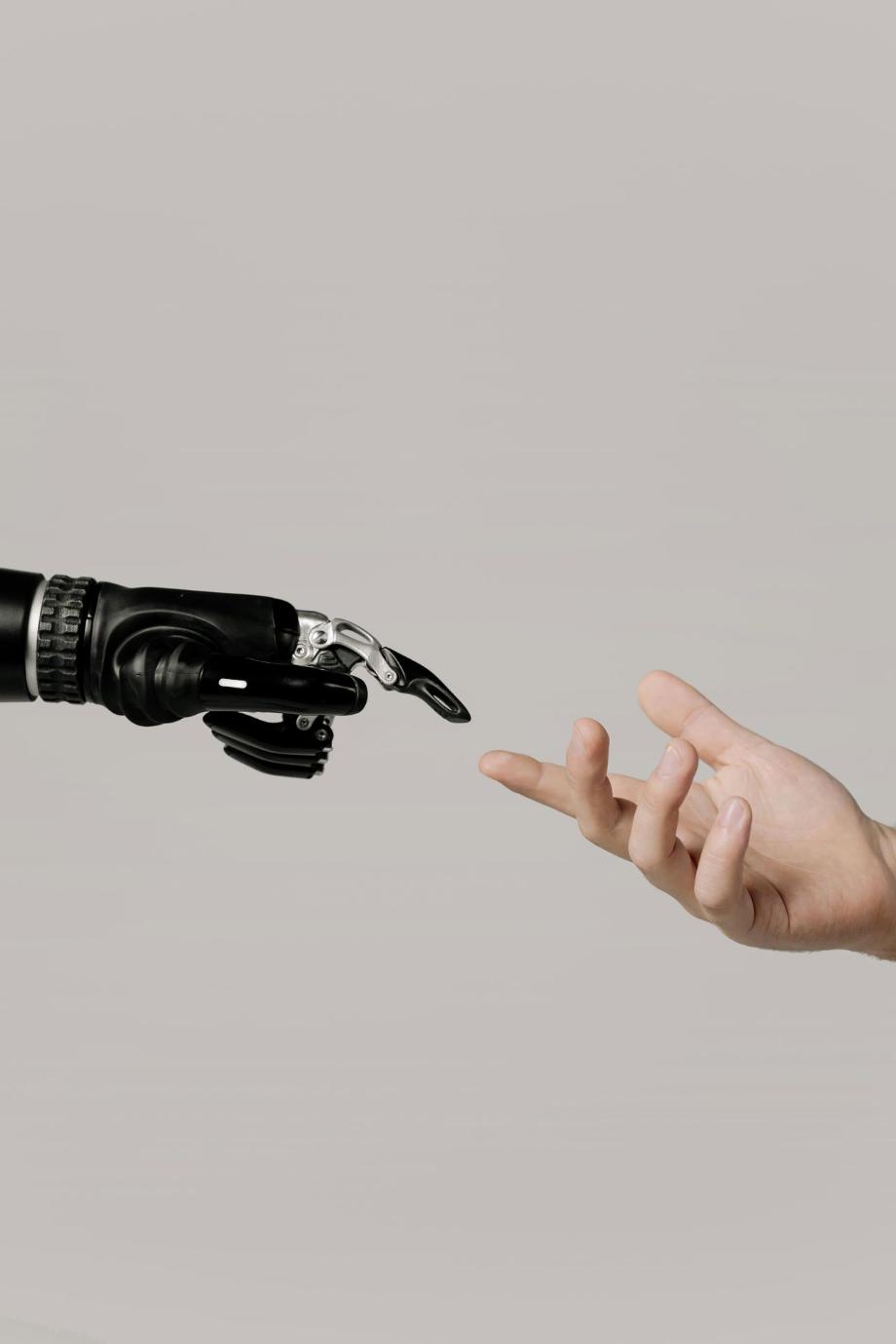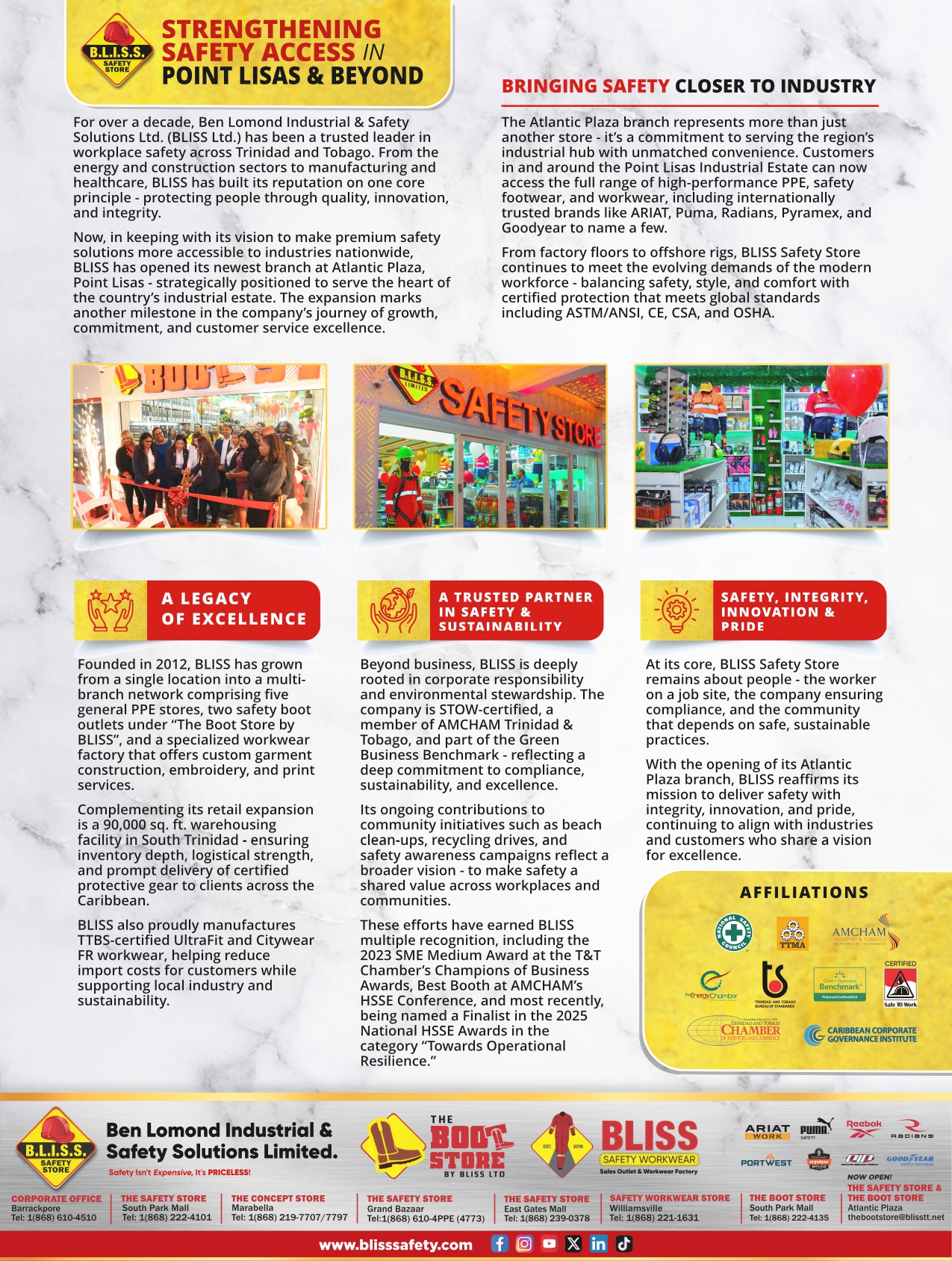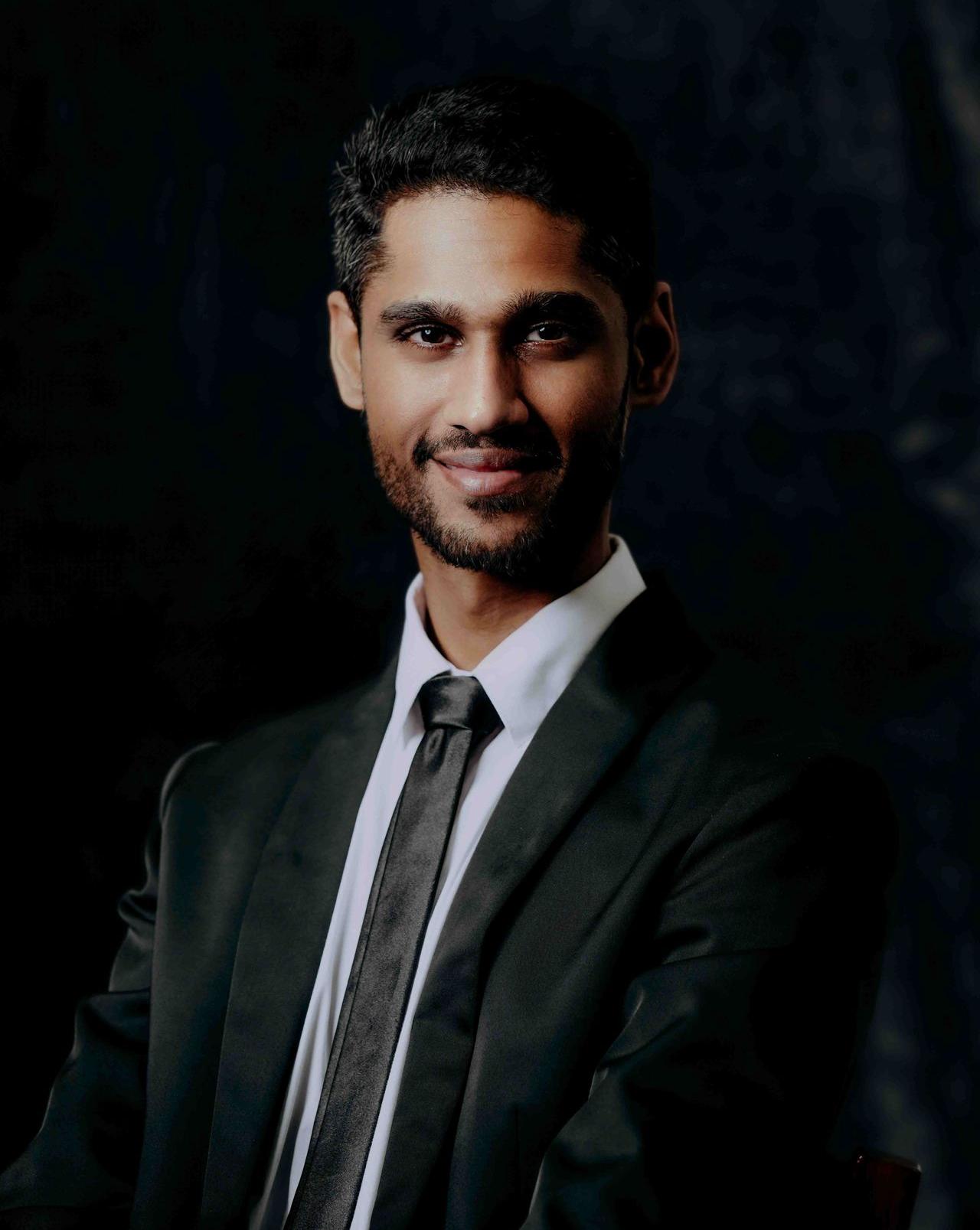Artificial Intelligence to Alliance Intelligence:
How Corporate-University Sustainable Partnerships win at ESG
By Dr. Craig Ramlal

Why the urgency? Carbon pricing now covers ~28% of global emissions and raised $100+ billion for public budgets last year. Trinidad and Tobago contributes <0.1% of global emissions but ranks high on per-capita emissions and faces real exposure to trade partners’ looming border carbon adjustments, which could mean a tariff on our carbon intensity embedded in exports. Meanwhile, the rules of the game are tightening. The International Sustainability Standards Board’s IFRS S2 climate-disclosure standard is effective for reporting periods from January 1, 2024, with first reports recently showing up, necessitating auditable climate data across governance, strategy, risk, and metrics. And for companies selling into Europe, the Corporate Sustainability Reporting Directive regime is expanding, with evolving timelines but higher expectations on Scopes 1-3, water, biodiversity, and assurance. Scope 3 emissions average 11.4 times operational emissions, often ~92% of a company’s footprint, so one can argue that no amount of “internal-only” optimisation will get you to your ESG targets.
 In comes Alliance Intelligence
In comes Alliance IntelligenceIn the time of Artificial Intelligence, Alliance Intelligence is how to deliver audit-ready solutions. What does Alliance Intelligence mean? In a nutshell it speaks to pre-competitive collaboration on the parts of ESG that nobody should reinvent, including shared environmental investments, research, datasets, measurement protocols, evaluation metrics, and compute. OECD evidence on university–industry collaboration shows that proximity and deliberate knowledge transfer consistently lift innovation performance and diffusion. The UWI St Augustine has recently set up the Artificial Intelligence Innovation Centre (AIIC), a campus-wide centre dedicated to multidisciplinary AI spanning research, commercialisation, policy creation and capacity development. Some of our initiatives include semiconductor, hardware systems and intelligent algorithms design and development; AI ethics, safety and evidence-based guidelines and recommendations.
The alliance can work in two ways; organisations can support from a selection pool of already ongoing pre-competitive list of R&D projects, through to solution discovery, where institutions bring problems and we work together to research solutions. Globally, such alliances are already compressing abatement cost curves and revealing cheaper, faster decarbonisation pathways.
Why would Alliance Intelligence beat solo efforts? As of early 2025, the global sustainable investment assets reached at least US$30.3 trillion, and some projections forecast a total of over US$40 trillion by 2030. Yet, many corporations struggle to move the needle, often because their in-house efforts lack the depth of specialised research. An NYU Stern review of over 1,000 studies found that 58% of businesses saw positive financial returns from ESG initiatives, but those amplified by collaborative innovation like joint R&D, boosted outcomes even further, enhancing operational efficiency by 44% and slashing carbon-related costs by 43% [5]. Another study showed solo efforts yield linear progress; alliances (especially industry-university) deliver compounding returns, as evidenced by strategic partnerships enhancing ESG performance by up to 25%.
But can’t we just buy a tool? Sure, but ESG by import may also be ESG by guess. It’s long been agreed that our risk profile, assets and rules are different, catastrophe modellers working in the Caribbean have warned that the exposure data their global models expect is “limited to non-existent” here so, without local experts building the datasets, modellers make assumptions that may or may not be accurate. Off-the-shelf models trained in foreign assumptions will misestimate Caribbean realities (topography, building standards, supply-chain nuances).
Alliance Intelligence fixes this by calibrating before calculating, producing sector-specific models, co-validated by business and academia, and traceable to international standards. But here’s the real crux of the matter: tools don’t invent local truth, research does. A pooled research program will build the locally calibrated emission factors, risk curves, and geospatial baselines that generic software lacks. It turns pilots into publishable methods, methods into audit-ready calculators, and calculators into cheaper capital and market access. If your numbers must survive assurance and border regulations, we need to first invest in the science.
Global Cocoa Crisis
 Here’s a very specific initiative that is already underway. Did you know that right now, we are in a global cocoa crisis? Extreme drought and floods in 2023 and 2024 due to climate change and the cocoa swollen shoot virus wiped out ~13% of cocoa yields and dropped the global supply to 4.38 million tonnes in 2024. Prices skyrocketed to around US$12,000 per tonne, hitting 60-year highs in comparison to $3,500 per tonne pre-crisis average. This caused consumers to see price hikes, cocoa smuggling to rise and industry stock prices to fall. Near-term EU deforestation policy rules still loom, which could initially tighten compliant supply. Many industries and downstream sectors such as chocolate manufacturers, the food and beverage industry, cosmetics and beauty industries and retail and groceries were all negatively impacted by this. What must happen and how does this help us meet our ESG targets? The world needs better strains of cocoa trees that are drought-tolerant and disease-resistant. At the same time evidence has shown that the cacao agroforestry stores substantially more carbon than monocultures around 82-154Mg C/ha for total carbon in cocoa systems.
Here’s a very specific initiative that is already underway. Did you know that right now, we are in a global cocoa crisis? Extreme drought and floods in 2023 and 2024 due to climate change and the cocoa swollen shoot virus wiped out ~13% of cocoa yields and dropped the global supply to 4.38 million tonnes in 2024. Prices skyrocketed to around US$12,000 per tonne, hitting 60-year highs in comparison to $3,500 per tonne pre-crisis average. This caused consumers to see price hikes, cocoa smuggling to rise and industry stock prices to fall. Near-term EU deforestation policy rules still loom, which could initially tighten compliant supply. Many industries and downstream sectors such as chocolate manufacturers, the food and beverage industry, cosmetics and beauty industries and retail and groceries were all negatively impacted by this. What must happen and how does this help us meet our ESG targets? The world needs better strains of cocoa trees that are drought-tolerant and disease-resistant. At the same time evidence has shown that the cacao agroforestry stores substantially more carbon than monocultures around 82-154Mg C/ha for total carbon in cocoa systems. As it turns out Trinidad and Tobago has an unfair advantage with cocoa. We are one of a handful of countries certified 100% fine or flavour cocoa, and importantly The UWI, St Augustine, hosts one of the world’s oldest dedicated cocoa research institutions the Cocoa Research Centre (CRC) that in turn harbours one of the the world’s most diverse public cocoa collections, the International Cocoa Genebank, Trinidad. They call this “the wishing well” since the depth of its genetics lets breeders and farmers wish for specific traits and pull the right parents from a single, curated source.
The AIIC and the CRC have partnered to stand up the Digital Cocoa Climate and Genomics Accelerator, which hosts several projects that merge AI, genetics and climate research. Work is on the way to build an audit-ready MRV for agroforestry carbon and pathways have been carved out for research into developing drought and disease-resistant varieties. This initiative has real global implications, and for Trinidad and Tobago it can also mean an exportable service stack we can license across the cocoa belt. We invite the AMCHAM T&T members to support this initiative, do contact us for more information.
One shared staircase beats twenty bought ladders. Alliance Intelligence ensures that when businesses and universities pool brains, data, and purpose, ESG shifts from checkbox to competitive edge. Trinidad and Tobago can export ESG science, not just commodities. Let’s show our work, and win together.
ABOUT THE AUTHOR

Dr. Craig Ramlal is the Executive Director of the Artificial Intelligence Innovation Centre, The UWI. The Artificial Intelligence Innovation Centre (AIIC) is a newly minted UWI St Augustine’s campus centre established to advance research, build home-grown capacity and serve as a campus-wide bridge to industry and policy, delivering consulting, pilots, and product commercialisation with AI as the focal point. Dr Craig Ramlal is the Executive Director of the Centre and the Chair of the CTU’s Caribbean AI Taskforce. He also serves as a lead on the Institute of Electrical and Electronics Engineers (IEEE) Global Initiative on the Ethics of Autonomous and Intelligent Systems 2.0, on CARICOM’s Security Strategy Steering Committee, and as an advisor to the Caribbean Examinations Council (CXC) on regional AI education policy matters. In 2023, the United Nations recognised him as one of 39 preeminent AI leaders and appointed him to the United Nations Secretary-General's High-Level Advisory Body on Artificial Intelligence.